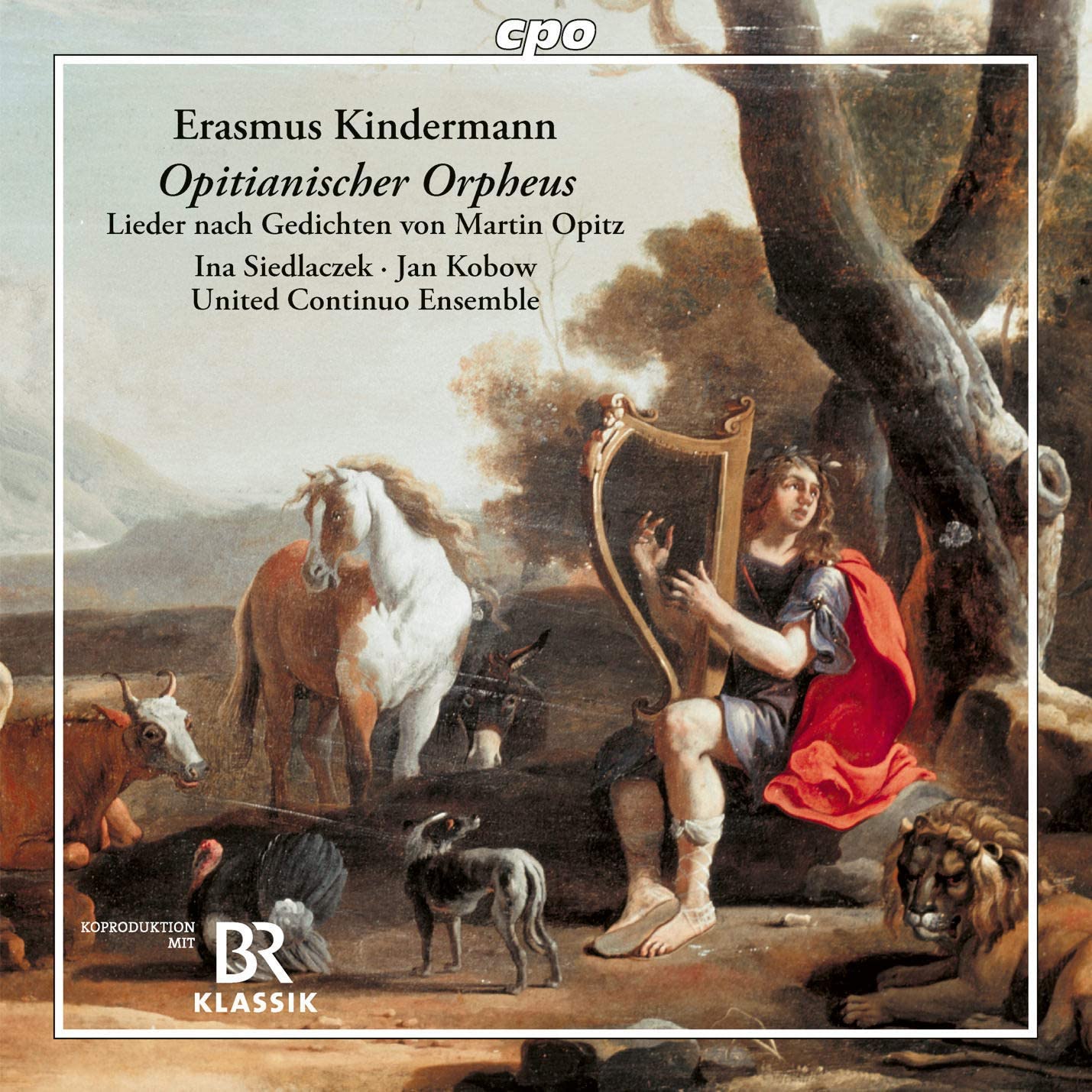Lieder nach Gedichten von Martin Opitz
Ian Siedlaczek soprano, Jana Kobow tenor, United Continuo Ensemble
66:57
Click HERE to buy this CD on amazon.co.uk
Erasmus Kindermann spent most of his 39 years of life in Nürnberg, and unfortunately for him it coincided largely with the Thirty Years War. He was lucky to spend the worst of it studying in Venice, and also enjoyed the considerable artistic upswing which greeted its conclusion, which saw the publication in 1642 of his settings of poems by Martin Opitz for solo, dialoguing or duetting voices with instrumental accompaniment. This coincided with the foundation of various literary societies in Nürnberg in which new literature was encouraged, but also the poetry of Opitz from 20 years earlier was read, performed and appreciated. A key figure in all of this was Georg Philipp Harsdörffer, whose ‘Poetic Funnel’ also of 1642 through which he boasted the art of German poetry (freed of Latin) could be poured in just six hours! Although Kindermann’s surviving portrait shows a man aged and haggard before his time, his Opitz settings are delightfully cheery, bucolic affairs with perky short-phrased tunes that seem to relate to the simplicity of folk music. The performances here are completely charming, with both singers instilling just the right amount of drama and expression into these beguiling songs. The cover of the first volume of Kindermann’s “Opitianischer Orpheus” depicts a small consort grouped around a table in a domestic setting presumably performing the contents of the publication, and the present forces evoke this delightful scene to perfection. The United Continuo Ensemble comprises two violins, gamba, harp, harpsichord and organ, and independently contributes a couple of violin sonatas by Kindermann to the programme. It is indeed a shame that Kindermann survived plague, war and financial ruin only to die just after peace promised a genuine cultural Renaissance in his home city. Remarkable too that his music seems genuinely so optimistic and without the shadow of the desperate times he had lived through. The same could be said of the poetry of Martin Opitz, regarded by many as ‘the father of German literature’, who died in 1639 at the age of just 43, having misguidedly demanded change from a beggar, who turned out to be suffering from the plague – a lockdown lesson for us all perhaps!
D. James Ross
